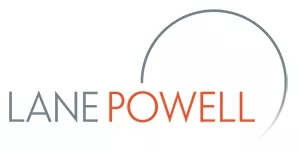The Democratic effort to enact President Biden's agenda has taken a rather convoluted path in terms of initiatives, price tag, and revenue-raising provisions. One proposal that has been subjected to much political ping pong in recent months creates new limitations on Internal Revenue Code (IRC) Section 1202, the favorite love child of Silicon Valley entrepreneurs and private equity investors. This proposal effectively nullifies the 2009 and 2010 expansions of IRC § 1202, essentially reinstating IRC § 1202 as originally enacted in 1993 (without bringing back the alternative minimum tax (AMT) headaches).
In a nutshell, for sales of qualified small business stock (QSBS) after September 27, 2010, IRC§ 1202 excludes a gain from tax up to the greater of $10 million or 10 times the investor's tax basis. This exclusion applies to noncorporate taxpayers (individuals and trusts) that held the QSBS (directly or via a flow-through entity) for at least five years. For a more complete description of how IRC § 1202 operates and its political machinations throughout its history, we recommend this retrospective: Kodesch, E. Revival of Section 1202, 38 J. Corp. Tax'n 27 (Sept/Oct 2011). For those who want a deep dive into the intricacies of this obscure tax provision, we defer to Tony Nitti's illumination in The Tax Adviser.
Under the just-released draft of Build Back Better bill (BBBB), the IRC § 1202 gain exclusion on the sale of QSBS would be limited to 50 percent (rather than 100 percent) for taxpayers with adjusted gross income (AGI) in excess of $400,000, including AGI resulting from the sale itself. The limitation also would apply to all trusts and estates regardless of income level, though retention of basis step at death would seem to insulate many such gains from tax. The BBBB would retroactively apply to sales after September 13, 2021, except for sales made after September 13 pursuant to a written binding contract in effect before then, that is not modified in any material respect thereafter. Obviously, most taxpayers would be subject to this limitation in any year they hope to rely on a material IRC § 1202 exclusion given that the gain individuals wish to shelter with IRC § 1202 generates the AGI that triggers the new limitation.
But wait, there's more. The applicable tax rate for gain from the sale of QSBS has never been the general long-term capital gain rate (currently capped at 23.8 percent, with the 3.8 percent net investment income). Instead, gain from the sale of QSBS is taxed at the 28 percent tax rate applicable to collectibles (31.8 percent with the net investment income tax). Thus, the zero federal tax currently available on the sale of QSBS will jump to 14 percent under the current iteration of BBBB (15.9 percent, with the net investment income tax). Presumably, states also will tax the gain remaining after the 50 percent exclusion. As we discussed in this article, the list of such taxing states will include Washington State starting January 1, 2022. Overall, a painful change for many but still better than the tax that would otherwise attach to such gain.
The BBBB also would include changes to the 3.8 percent net investment income tax. This tax currently generally applies to the passive income of "high income" taxpayers. The BBBB would expand the tax to include "specified income," defined to include income and gain from active trades or businesses for individual taxpayers with modified AGI of $400,000/$500,000 (single/married) and for trusts subject to tax at the top income bracket (income over $13,450 next year).
The current iteration of the BBBB has dropped the previously proposed eligibility income cap for the 20 percent deduction under IRC § 199A. With this preservation of the IRC § 199A benefit, when considered in concert with the changes to IRC § 1202, tax advisors may find themselves again favoring flow-through entities over C corporations. Query whether those choices may come back to haunt advisers and their clients given the zombie-like superpowers of IRC § 1202, a provision that is periodically infused with more power by strange tax policy (and powerful dark forces) - mystical powers that fostered IRC § 1202 during its metamorphosis from a meaningless phantasm in the 1990s to the entrepreneurial dreamwork it became.
The content of this article is intended to provide a general guide to the subject matter. Specialist advice should be sought about your specific circumstances.


